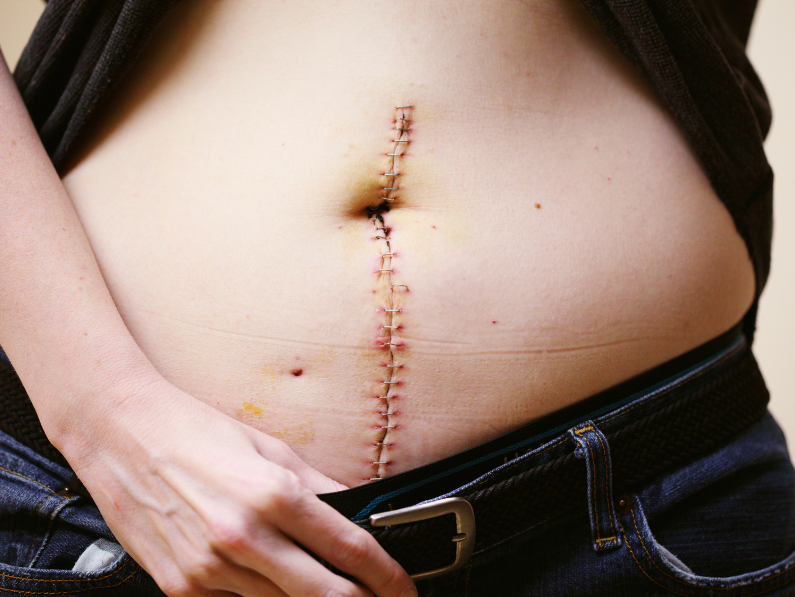Chlamydia is a sexually transmitted infection (STI) that can impact reproductive health and fertility if left untreated. While this isn’t a glamorous topic, it’s essential to discuss it because many adults have little understanding or regard when it comes to protecting their sexual health. Therefore, leading to an increase in the spread of STI’s. However, proper education and preventative methods can counteract this. So, let’s dig into the details regarding what chlamydia is and how it impacts the body.
Page Contents
Is Chlamydia A Bacteria or Virus?
Chlamydia is a bacteria which is known scientifically as chlamydia trachomatis. And it’s spread via any unprotected sexual or genital contact, which includes vaginal, anal, oral, or direct genital to genital contact with an infected person. However, since it’s a bacteria spread via sexual contact, it can’t be spread via contact with objects and surfaces such as toilet seats, tables, and counters. Nor can it be transmitted via saunas, swimming pools, or sharing a space with an infected person. Furthermore, it’s not airborne and can’t be spread via the air or standing next to a person with chlamydia.
However, genital secretions such as vaginal fluid and semen carry the infection. Therefore, the vagina, anus, cervix, urethra, and penis are the primary areas infected- although, in rare instances, it can affect the throat and eyes. Where the infection spreads depends on the type of sexual contact performed during transmission of the STI.

Does Chlamydia Have Symptoms?
Yes and no. On average, 70% of people in America contract chlamydia during unprotected sexual intercourse. Additionally, outward signs and symptoms are not present in the early stages of contraction, so it’s easy to pass from person to person during unprotected sex.
Around the 5 to the 10-day mark, symptoms start to appear.
Symptoms include but are not limited to:
- Painful sexual intercourse
- Bleeding after sexual intercourse
- Abnormal vaginal discharge that may have an odor and appear yellow
- Burning sensation while urinating
- Pain in the lower abdomen
- Irregular bleeding between periods
- Swelling in the vagina and around the anus
- Low-grade fever
Those at an increased risk of contracting chlamydia include young women between the ages of 15-24 and those having unprotected sex with new or multiple partners at once.
How Chlamydia Complicates Reproductive Health
You can easily contract chlamydia and not realize you have it especially considering how the symptoms I mentioned above can be easily ignored or confused with another condition. Thus, making it tricky to diagnose and opening the door for the infection to spread. Once chlamydia spreads, it infects the fallopian tubes and uterus. The result is scarring and damage in the reproductive organs causing fertility complications. If you become pregnant with chlamydia, your risk of preterm labor, low birth weight, and infecting the baby during delivery increases.

Treating Chlamydia Before It Spreads
And, while chlamydia is a serious STI, it is treatable and can prevent the damage to reproductive organs when caught early. Hence, why it’s essential to focus on healthy sex habits that prevent the spread of chlamydia while also detecting it in its early stages and treating it.
Prevention Methods
Engaging in safe sexual practices is the first step toward preventing chlamydia. Safe sex involves using condoms with new sexual partners, participating in monogamous relationships, not sharing sex toys, getting regular screening for STIs, and having your partner do the same. All of these actions and habits can decrease the likelihood that you’ll contract chlamydia and other sexually transmitted infections.
Treatments
Whether you suspect that you may have chlamydia or experiencing one or more of the symptoms I mentioned earlier. Your first step should be visiting your doctor to receive proper testing. They may administer a urine test or take a vaginal sample for evaluation. If you test positive, your doctor will prescribe antibiotics to clear up the infection. Two of the most popular antibiotics prescribed to treat chlamydia are azithromycin and doxycycline. With azithromycin, you will take a single dose, whereas, with doxycycline, you’ll take it twice a day for one full week. As with all antibiotics, it’s imperative to finish them and abstain from sex during treatment. Doing so prevents reinfection and you spreading chlamydia to your partner.
Take Ownership of Your Health
Taking the initiative to safeguard your health if you choose to be sexually active is necessary for health and well-being. Increase your awareness of sexually transmitted infections that can be spread via sexual contact and learn how to protect yourself. Practicing safe sex is one way that you can protect yourself from contracting chlamydia. Another option is to abstain from sexual contact until you’re in a monogamous and committed relationship. Additionally, getting regular screenings can aid in early detection of chlamydia, which is integral in preventing long-term complications to your reproductive health.
References
Center for Disease Control and Prevention: STDs During Pregnancy-CDC Fact Sheet
About the Author

Hi, my name is Kathleen but you can call me Kat. I’m a health and wellness professional turned freelance writer and content creator. You can find me on YouTube and Instagram. If you take the opportunity to visit me on my other platforms don’t hesitate to leave a message, I would love to hear from you!
Subscribe!
Get updates delivered directly to your inbox!
[gravityform id=”1″ title=”false” description=”true”]






